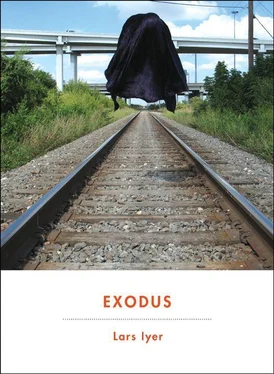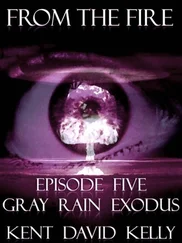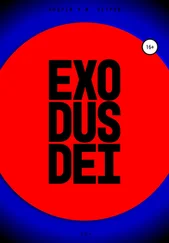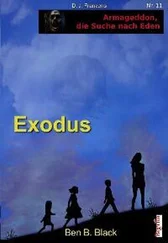I zigzagged across the greens to avoid the marksmen, with my copy of Stages on Life’s Way , didn’t I? I cracked open the spine of The Concept of Irony as my breath froze in the air in my sunless back room. I began The Concept of Anxiety as I stamped my feet for warmth by a fire of old plywood on an upper deck. And I filled notebooks with my thoughts on The Writing Prefaces and The Book on Adler , while muggers waited in dark corners, with their Stanley knives and screwdrivers.
Did I bother the rastas about Kierkegaard? W. wants to know. He can imagine it, he says. He sees it in his mind’s eye: the failed bohemian talking about Kierkegaard to the rastas. Did I bother the crusties about Kierkegaard? W. can see that as well, he says. The failed bohemian blathering about Kierkegaard to the crusties. And what about the junky ravers — did I bother them? He can see that, too, W. says: bug-eyed ravers staring blankly at the failed Bohemian chattering about Kierkegaard …
Oxford Road. W. fans himself with his copy of The Star of Redemption . Manchester is so humid , he says.
We head to the cool of the Manchester Museum. Dark halls of mummies. Preserved insects pinned on display boards. On the top floor, I show W. the living wasps’ nest in a box of glass: a slice of honeycombed nest, with wasps crawling all over it.
But W. is only interested in reading the plaques about Egyptian mythology. About the beasts of chaos depicted in the mausoleums of the pyramids: hybrid creatures, half frog, half bat; mad dogs and storm-demons; flying vipers and scorpion-men. He reads about Apep, the evil god, their three-headed, six-eyed leader, who could neither see nor hear. And about the cry of Apep, because that’s all Apep did, W. says: cry and lament his own existence, as he slithered through the primordial darkness.
I tell W. about the three-headed, six-eyed dragon that Indra defeats in Indian mythology. And about the three-headed, six-eyed dragon that Marduk kills in Iranian mythology. I tell him about the monsters of Indian mythology: of Snavidka — who boasted that when he reached adulthood, he would take heaven and earth as his chariot. And I tell him of Gandarva, the dragon of the sea, who threatened to blow out the stars and swallow the sun …
Paganism! W. cries. Heathenism! These are the monsters Judaism sets to flight. In some ways, they remind him of the beasts the prophet Daniel sees, in his visionary dream, W. says. A lion with eagle’s wings … a bear-like blob … a four-headed leopard … And then, the fourth beast of Daniel’s dream, the most terrible of all, with its ten horns, and an eleventh one sprouting from its back, with a tiny mouth and tiny eyes, screaming that it is about to turn the world into a waste of desolation .
Of course, the beasts are only personifications of the tyrants, W. says. Of the Seleucid Empire. Of the Babylonian invaders. They are ways of talking about the destructive element of the last days, before God’s justice prevails. Before salvation comes, the forces of chaos will rage as never before: doesn’t the Bible tell us that? Before redemption comes, before God reigns on earth, there will be a period of terrible tribulation: that’s what Daniel sees in his vision, W. says.
Sometimes W. wants to send up a great cry of dereliction. Not his dereliction, he says, but dereliction in general. Abandonment.
Who has abandoned us? Who has left us behind? Who left us to ourselves, and left him to me? Who thrust me into his arms like a foundling?
The times are changing, W. says. A whole epoch is ending. He fears that we are its gravediggers, W. says. That the pit we have dug for ourselves — the disaster of our careers, the ludicrous posturing of our lives as thinkers — is the tomb into which philosophy itself will be lowered …
Plato is turning in his grave, W. says. Kant is spinning in his grave. Did Cohen see what was coming? Did Cassirer?
The apocalypse has always been our alibi, our excuse, W. says. The greatest of sick-notes. What we could have done, if the end hadn’t seemed so close!
Of course, the apocalypse was also the condition of our thought, W. says. Why else have we felt such an urgency to think? Why else has our thinking been so marked by despair?
We were born of the apocalypse to think the apocalypse, W. concludes. We are only the way the apocalypse has come to know the nightmare of itself. Because apocalypse does suffer from itself, W. says.
The apocalypse doesn’t want to be the apocalypse, that’s the thing, W. says. That’s why we should pity it, and pity ourselves, as the ones in whom the apocalypse has awoken to self-awareness. And that’s why W. should pity me, who am so much closer to the apocalypse than he is.
My insomnia is only the insomnia of apocalypse, W. says. My obesity is only the obesity of apocalypse. And my idiocy is only an apocalyptic idiocy, a way for the apocalypse to say, end me now!
‘ What else does this craving, and this helplessness proclaim ’, W. reads from his notebook, ‘ but that there was once in man a true happiness, of which all that now remains is the empty print and trace? ’
True happiness : what can this possibly mean for W.? What sense of it can he have? I’ve been in his life too long, he says. Far too long, blocking the sun of what might have been his happiness with the great round moon of my stupidity.
Ah, the lunar eclipse of his life! The obliteration of his hopes and dreams! He knows his happiness, what he might have been, only from the faint glow of its corona.
We’re growing old, W. says. Our eyes are dulling and our hair is greying. Even my eyes, the one who he took as a protégé! Even my hair, the one he singled out for being so young!
Socrates taught Plato, W. says. Plato taught Aristotle. And Aristotle taught Alexander, who conquered half the world. Hasn’t W. dreamt of a pupil who would leap ahead of him? To be superseded in thought … To become a kind of springboard for a thinker who would leap yet higher, yet farther … To nurture the protégé who would blast new skies open …
But he has engendered only a monster of thought , W. says. The Biblical Beast with blood on its muzzle. Something Hindu, with thirty-seven heads.
What is my significance? W. wonders. Do I illustrate some broader trend? Am I a man of our times, or against our times? Sometimes, he thinks I am ahead of our times, W. says. That I am a kind of prophetic witness. That I am a living sign , such as you might find in the Bible.
W. thinks of the later prophets, who no longer speak with God as Moses and Abraham did — as with a neighbour, face to face, or as the Bible says, mouth to mouth . He thinks of the prophets who God commanded to incarnate the message they were charged to deliver.
Isaiah was told to wander naked and barefoot for three years, in order to send a message to the King of Assyria, to parade his prisoners naked and barefoot to shame Egypt. God told Jeremiah to make wooden yokes and put them on his neck, and, when a false prophet broke them, to replace them with yokes of iron, in order to send a message that Israel will not put its neck under the yoke of Babylon …
But I was a prophet who didn’t know that he was a prophet, W. says. I was a sign who didn’t know what he signified. Which made his role very clear, W. says. Which made it obvious what he was put on earth to do …
Philosophy gives substance to our suffering, W. says. Philosophy gives sense to suffering by communicating it to others. Speech, the capacity to speak: that’s what overcomes futility, W. says. That’s what does combat with the senselessness of the world.
Читать дальше












